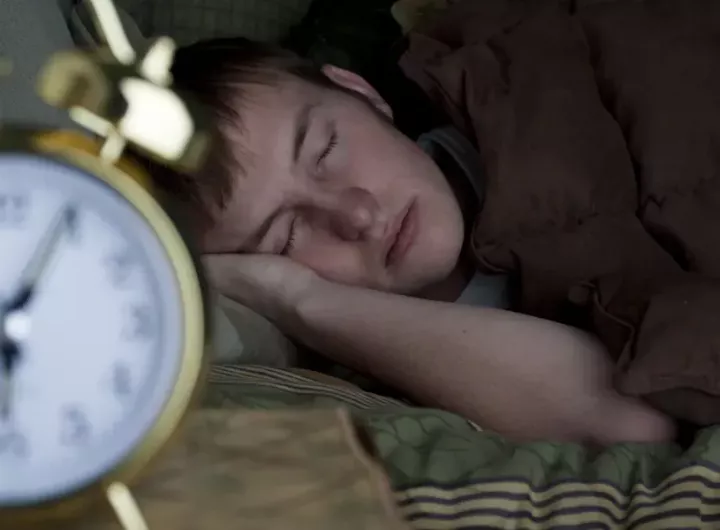
What's NOT going on in your teenager's bedroom?
Is your teenager getting enough sleep? The answer is - probably not. Is that a cause for concern? Probably yes!
Studies suggest that many teens get no more than 6 ½ hours of sleep during weeknights, although recent research suggests they probably need over 9 hours! No wonder the weekends function as catch-up times, with teens getting up late in the morning after trying to pay off some of their sleep debt.
Why do teenagers need so much sleep? Probably because of all the physical and neurological changes taking place. We do know that melatonin secretion in the brain appears to be delayed during adolescence, so they often don’t feel tired earlier in the evening. Consequently they don’t feel like going to bed, and then they’re not keen to get up early either!
While there have been several trials in various parts of the world to begin school later for teenagers, with positive results in relation to learning and engagement, there are also things you can do at home to help your adolescent get more shut-eye.
ROOM FOR IMPROVEMENT?
Teenagers’ bedrooms are often akin to their caves and they frequently retreat to them for all sorts of activities. As a parent, you have a fair idea of what these are: using social media, watching movies, gaming, texting, tweeting and talking to friends. Homework? Possibly.
The end result is that sleeping in their beds is the last thing kids do in their “bedroom”. But it turns out that using the bedroom exclusively for sleep as much as possible is one of the key steps to creating better sleep habits. So, encourage your teenager to spend more time out of their bedroom when they’re doing other activities. This may mean moving things around and changing the way you all use the house so teenagers can take part in their other activities such as homework, using social media and gaming, without causing too much disruption to other family members. Headphones are a wonderful invention!
SEE THE LIGHT
Having said that, electric light and screen time is probably the other most important element in the equation. It’s very important to promote sleep readiness by restricting screen time prior to bed. Electric light in general, but especially the light emitted by TVs, computer screens and related devices, makes it more difficult for the brain to switch off and move into sleep mode. So set a nighttime routine that puts some limits on these activities in the period before bedtime.
FAMILY TIME
Sometimes the glued-to-the-screen-in-their-room arrangement suits parents, especially if things tend to get tense when teens are around. Heated arguments can also impact negatively on sleep readiness. If things are a little chaotic, there’s a lack of routine, or underlying family problems, parents may need to tackle these at the same time.
WEEKEND WALKS?
It’s tempting to make Saturday and Sunday sleep-in day for everyone, but a healthier option is to not let this drag out for too long. (Some experts recommend a short nap after school as way of catching up on sleep without creating too much of a weekend-lag.) Try to find time for some family exercise, especially if your teenager doesn’t do any other physical activity. This could be as simple as a family bike ride or a walk around the block. On the other hand, if your child is involved in training or playing sport after school or at night, this could be part of the problem — research suggests that morning exercise is more conducive to a good night’s sleep. If they must play sport at night, try to have a good pre-sleep relaxation routine in place.
DEAL WITH STRESS
Is your teenager trying to juggle too much? While the stereotypical teen may be a bit of a slacker, the reality is that many kids feel under a lot of pressure from a variety of sources. Could your son or daughter do with some help in dealing with anxiety? Ironically, being over-tired can contribute to the kind of stress that can interfere with sleep. Have a gentle chat and consider asking your doctor where to get support. (While on the medical side of things, drinking tea, coffee or cola or even too much of any liquid will also disrupt sleep, and tiredness can create a cycle of depending on them more. Resist the temptation to offer your teenager a coffee to help them stay awake to do last minute assignments. If it’s too late for that, then help them control their intake, at least.)
IT’S WORTH IT
Getting our teens successfully through their school years is a challenge, and it’s easy to overlook the importance of sleep. But as parents we need to put a higher priority on this (and perhaps take a good look in the mirror if we’re also staying up late, glued to a screen). As well as improved school results, better sleep has also been associated with fewer accidents, and reduced risk of depression and other emotional problems. So while it will involve quite an effort to promote improved sleep routines for your teenager, and you may have setbacks at times, the long-term benefits mean that it’s worth getting everyone involved and sticking at it over time.